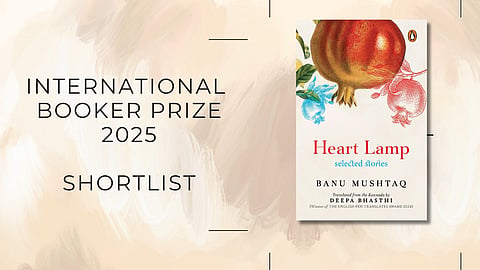

BENGALURU: Banu Mustaq’s ‘Heart Lamp’ is a step closer to winning the 2025 International Booker Prize. Banu started writing Heart Lamp in 1990, and the curation of these stories took 33 years.
“I started writing much earlier, not only to express my anguish and feelings, but to show solidarity with the voiceless,” shares Banu.
Originally written in Kannada, the book has been translated into English by Deepa Bhasthi. In her collection of 12 short stories, Banu talks about the lives of Muslim and Dalit women in South India, reflecting how they have been resisting for ages, irrespective of generations and situations, striving to live their best lives, despite the weight of religious and societal expectations. It is the story of women she knew, the story of all women, often just confined to the kitchen in a corner of the house.
“My stories are a reaction to the societal oppression and compelling subjugation of womenfolk, unconditionally, or the form of resistance to challenge patriarchal and inhuman norms,” she says. Inspired by real-life incidents, Banu refers to these experiences as a ‘seed’ that grows with the imagination of the reader. She implants this poignance in the minds of readers, reminding one of that familiar ache which we all would have seen and experienced at some point of our lives.
“These stories speak of something much larger, something deeply human. Their relevance extends across communities, countries and cultures, making them powerfully resonant no matter where you’re from,” shares Deepa, adding, “I hope more readers turn to fiction, to translated fiction, and definitely read more women, and more women translators.”
As Heart Lamp finds its global recognition, Banu reflects on what it means to her. “Though in my motherland, I have been honoured and awarded for my works, this global recognition made me realise language is a barrier, beyond which all human emotions respond similarly, no matter where we are born,” she concludes.